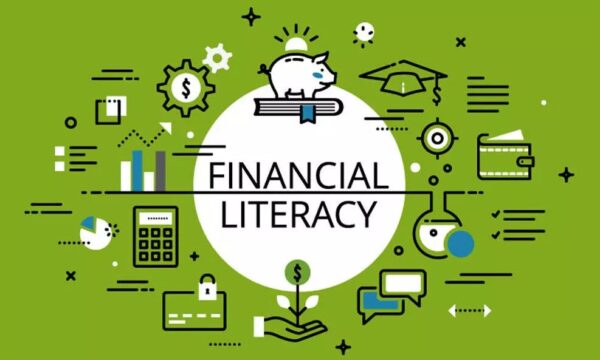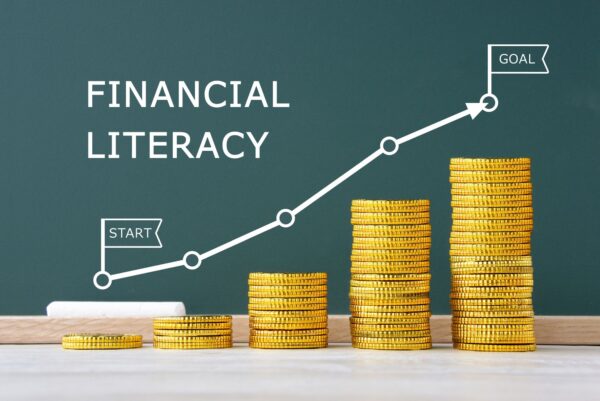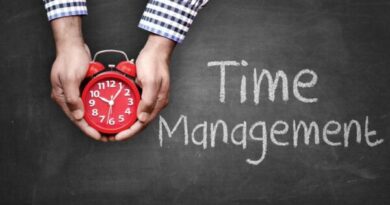Unlocking Financial Power: A Fresh Approach to Financial Literacy
In today’s world, financial literacy stands as a key ingredient to achieving long-term security and success. Whether it’s managing daily expenses, navigating loans, or securing your future, a solid understanding of personal finance is crucial. Yet, many individuals remain unaware of basic financial principles, leaving them vulnerable to poor decisions and economic stress.
But what exactly is financial literacy, and how can it transform your relationship with money?
Financial Literacy: The Core Concept
At its simplest, financial literacy means understanding how money works. It’s the knowledge that allows you to budget wisely, manage debt effectively, save strategically, and invest intelligently. It’s not just about crunching numbers—it’s about developing the confidence and skills to navigate the complexities of the financial world.
By mastering financial literacy, you gain control over your financial decisions, enabling you to make smarter choices that can positively shape your future.
The Pillars of Financial Literacy:
- Budgeting Wisely: Knowing how to track income and expenses is essential. A budget helps you plan for current needs while saving for future goals, ensuring financial stability.
- Smart Saving and Investing: Building wealth requires more than just setting money aside. Financially literate individuals know how to invest wisely, grow their assets, and prepare for future challenges like retirement or emergencies.
- Debt and Credit Management: Credit can be a valuable tool, but when misused, it can lead to financial difficulties. Financial literacy teaches you how to handle debt responsibly, maintain a healthy credit score, and avoid costly mistakes.
- Understanding Financial Tools: From insurance and loans to retirement accounts, being able to decode the vast array of financial products gives you the power to choose what’s right for you.
- Tax Awareness: Understanding how taxes affect your income and investments can help you plan effectively and maximize your savings by leveraging deductions and tax credits.

The Cost of Financial Illiteracy:
A lack of financial knowledge can lead to poor decisions with lasting consequences. Overspending, mismanaging debt, or failing to save for emergencies can create a cycle of financial instability. On a larger scale, financially struggling households are often less prepared for future challenges, which can hurt both individual well-being and economic growth.
In small businesses, financial illiteracy may lead to cash flow issues, overspending, and missed opportunities for growth. Entrepreneurs who don’t understand basic financial principles often struggle to manage their operations efficiently.
How to Strengthen Your Financial Literacy?
Education is the strongest tool to bridge the financial literacy gap. Here are some fresh strategies to deepen your financial understanding:
- Online Courses and Resources: Websites like Udemy, edX, and other financial education platforms offer free or affordable courses to boost your understanding of personal finance.
- Workshops and Financial Seminars: Many organizations offer workshops to educate individuals on various aspects of money management.
- Financial Tools and Apps: Use finance apps to manage your budget, track expenses, and stay on top of investments, making it easier to maintain financial discipline.
- Seek Professional Guidance: Consulting with financial advisors can give you personalized insights and strategies to meet your financial goals.
Why Financial Literacy Matters?
Being financially literate equips you with the ability to avoid common money mistakes, reduce financial stress, and achieve greater security. The benefits extend beyond your own life; financial literacy strengthens families, businesses, and communities. It paves the way for financial independence and helps people make informed decisions about their careers, investments, and lifestyles.
Ultimately, financial literacy is not just a skill but a tool that fosters growth, stability, and opportunity. By understanding your finances, you can confidently navigate life’s uncertainties and build a prosperous future for yourself and those around you.
Conclusion:
Financial literacy is the key to unlocking financial power and autonomy. Whether you’re just starting your financial journey or seeking to refine your skills, investing in financial knowledge is one of the most impactful decisions you can make. The more you understand, the better equipped you are to seize opportunities, avoid pitfalls, and build a future defined by financial confidence.
FAQs:
1. What does financial literacy mean?
Financial literacy is the understanding of key financial concepts such as budgeting, saving, investing, and managing debt. It empowers individuals to make informed decisions about their personal finances, ensuring they can effectively plan for both present needs and future goals.
2. Why is financial literacy so essential?
Financial literacy is vital because it provides individuals with the tools to manage their finances wisely. It helps people avoid financial mistakes like excessive debt, poor investments, or lack of savings, paving the way for economic security and stability.
3. What are the fundamental aspects of financial literacy?
The key elements of financial literacy include:
- Budgeting: Keeping track of income and expenses to maintain financial control.
- Saving: Setting aside funds for future use and emergencies.
- Investing: Growing wealth over time through various financial instruments.
- Debt Management: Using credit wisely to avoid financial strain.
- Understanding Financial Products: Knowing how tools like insurance, loans, and retirement accounts work.
- Tax Planning: Managing taxes to optimize your financial position.
4. How can I boost my financial literacy?
You can improve financial literacy by:
- Enrolling in personal finance courses online or through local workshops.
- Reading up on finance-related topics through trusted blogs, articles, and books.
- Using budgeting and investment apps to stay organized.
- Seeking advice from a professional financial planner to address specific needs.
5. Who benefits from financial literacy?
Everyone stands to gain from financial literacy, from young adults handling student loans to retirees managing their savings. It’s an essential skill that promotes sound financial decision-making at every stage of life.
6. How does financial literacy influence small business success?
For small business owners, financial literacy is key to managing finances effectively, securing funding, controlling costs, and making sound business decisions. Without it, business owners might struggle with cash flow, debt, or financial planning, which can hinder growth.
7. What’s the difference between saving and investing?
Saving involves putting money aside in a low-risk account for short-term or emergency use, while investing refers to purchasing assets like stocks, bonds, or real estate in hopes of generating long-term returns, often with a higher level of risk.
8. What are the risks of being financially illiterate?
Lack of financial literacy can lead to poor money management, unmanageable debt, and missed opportunities for saving or investing. This may result in financial stress, poor credit, and a reduced ability to achieve long-term financial goals, sometimes leading to dire outcomes like bankruptcy.
9. How does financial literacy support long-term financial planning?
Financial literacy enables individuals to set realistic long-term goals—whether it’s saving for a house, retirement, or education—and to create actionable plans for achieving those goals. It also helps prepare for unexpected financial challenges through smart investments and proper savings strategies.
10. What are some myths surrounding financial literacy?
- “Investing is only for the wealthy.” Anyone can start investing with small amounts.
- “Budgeting is restrictive.” A budget allows for financial freedom by giving you control over your money.
- “All debt is harmful.” Managed correctly, debt can be a useful tool for building credit and wealth.
11. Where can I access free resources to learn about financial literacy?
Several free resources are available for learning financial literacy, including:
- Online platforms like Coursera and edX.
- Financial institutions often offer workshops or seminars.
- Local libraries and community centers frequently provide financial education resources.
12. Is there a right time to start learning financial literacy?
There’s no specific age to begin—it’s beneficial for people at any stage of life. Teaching children early financial habits sets a solid foundation, while adults can always improve their understanding to better manage their current and future financial health.





